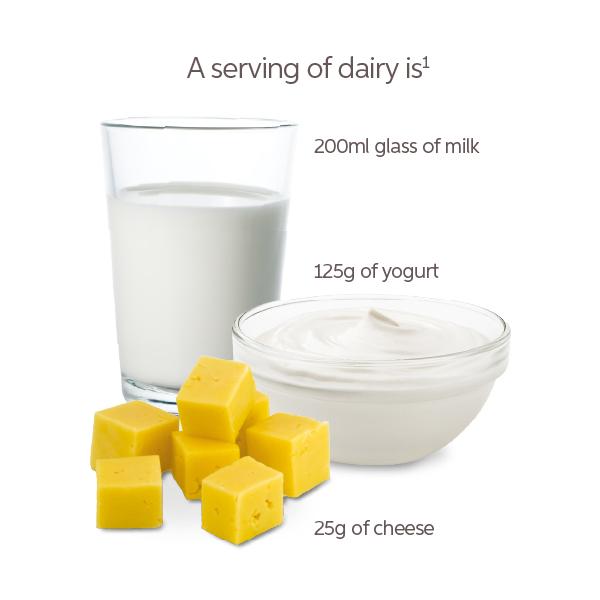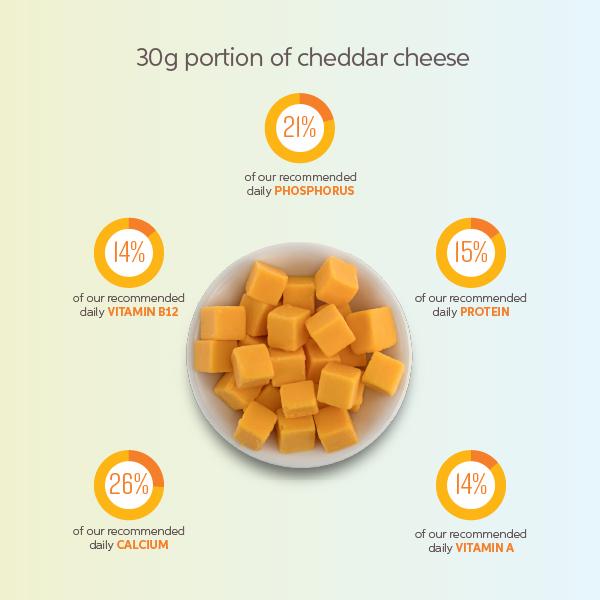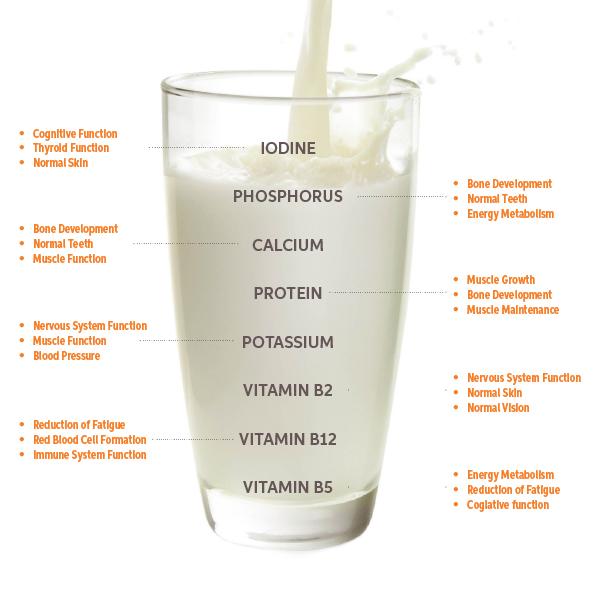
The importance of a healthy balanced diet
What is a balanced diet?
Eating a healthy, balanced diet is an important part of maintaining good health, and can help people feel their best. This means eating a wide variety of foods in the right proportions, and consuming the right amount of food and drink to achieve and maintain a healthy body weight. With so many diets out there, it is easy to forget what the recommended dietary guidelines are.
The food pyramid is a great resource that was originally designed to make healthy eating easier as it lays out the different food groups and explains how much of each group should be eaten to maintain a healthy balanced diet.

Dairy
Dairy is a nutrient rich food group, which has been championed for its role in bone, teeth and muscle health for decades. It is a unique blend of nutrients, which may include calcium, phosphorus, iodine, Vitamin B2 and B12, fermented cultures (yoghurt and cheese) bioactive peptides and high quality protein containing all of the essential amino acids. It is recommend we consume 2-3 servings of dairy per day.

Cheese
A 30g portion of cheddar provides calcium, phosphorus, vitamin B12, and protein and can be enjoyed as part of a healthy, balanced diet. As a fermented dairy food, cheddar cheese is also naturally low in lactose. Research on Irish cheddar cheese has found that grass-fed dairy has several nutritional benefits compared to that from grain-fed cheese.

Milk
Milk is a natural and nutritious drink, which is important to achieve a balanced diet and an active lifestyle. It is well known that milk is a rich source of calcium, a key nutrient for normal growth, development, and maintenance of bones.
However, milk contains more than just calcium. One glass of milk provides eight essential nutrients, which all play an important role in health.

Grains & Cereals
Starchy foods are an important source of energy. Once consumed , they are broken down into glucose, which is the body’s main fuel, especially for our brain and muscles. Starchy foods provide important nutrients to the diet including B vitamins, iron, calcium and folate.
Starchy foods can also provide fibre which is needed for good digestive health. Barley and oats are also rich in ß-glucans, which have many approved health benefits, including maintaining blood cholesterol levels. It is recommended to consume 3-5 servings of high fibre grains per day.
Quinoa
Quinoa is an exception to plant foods, containing all the essential amino acids, making it a complete protein source. The fat profile of quinoa is comprised of unsaturated fatty acids, along with having a good source of minerals. It contains greater amounts of calcium, magnesium, iron, and zinc compared to other common cereals.
Oats
Oats are a versatile, low-cost protein source, which contains a range of vitamins and minerals including phosphorus, magnesium, zinc, vitamin E, and thiamine, along with bre ß-glucans, and non-nutritive components known as phytochemicals.
ß-glucan is a type of dietary soluble fibre, which is present in high amounts in oats. According to EFSA ß-glucan contributes to the maintenance of normal cholesterol levels and reduction of the blood glucose rise after a meal.
By consuming a healthy balanced diet, it means you are giving your body the right nutrients to work to its full potential.
